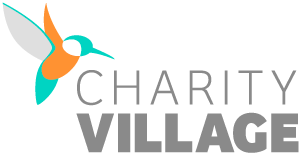The next federal election in Canada will take place in October 2025. While the CRA’s Income Tax Act prohibits charities from supporting or opposing any political candidate or party, an election year still presents opportunities for organizations to get involved in a way that can provide meaningful support to your mission and the community you work with.
Changes in government can have significant implications on funding and fundraising opportunities for charities and nonprofits alike. New governments often bring new policies and new priorities which can mean a drastic change in federal funding programs that can impact project-based grant opportunities, and even eliminate operational funding for certain organizations. While fundraising is not central to the work of charities, it is important in providing enough stability for these organizations to maintain the resources that allow them to operate and do their work.
As political parties start to get election-ready, this time period presents opportunities for charities and nonprofits to prepare for how they will engage with elected officials and candidates in a nonpartisan way, and hopefully safeguard future funding opportunities even if there is a change in government.
For organizations that are unsure where to start, here are five opportunities, and a companion action plan, for charities and nonprofits to prepare for an election year.
1. Raise awareness. Whether your organization does work in housing, immigration, food security, health, or the arts, your work makes a significant impact on the greater community. Elections provide an opportunity for your organization to raise awareness about the work you do and its importance since this is generally the time when most elected officials and candidates are eager to listen to issues that impact potential voters. There is no better time than now to review your organization’s case for support and familiarize senior staff and volunteers with the most important work you do so you can speak about it with confidence.
2. Share issues affecting the community. Charities and nonprofits are often hubs that uniquely understand the issues impacting the community they serve. Your organization also likely has important data on your community that is valuable information for leaders like elected officials, as it can help form policies and programs that support all citizens. Charities that engage in advocacy or are already engaged with current elected officials on public policy, may also have information on how current policies are either positively or negatively impacting the community. Your voice is important, and the election presents an opportunity to raise these issues so candidates can address them on their platforms. This is an ideal time to begin gathering information from your community and brainstorming with your leadership about what concerns should be raised.
3. Collaborate with other groups. There is truly strength in numbers when it comes to engaging elected officials and candidates. The charitable sector is filled with many groups doing similar work within the same sector. Many of the issues we face as a society are far too large for one group to tackle. An election year is an opportune time to work with stakeholders, including community partners, volunteers, and those you have strong donor relationships with, on what should be communicated with candidates and elected officials. To start now, begin reaching out to community partners and strategizing on how you can work together. If your organization does not have many community partners, now is the time to start developing those relationships.
4. Educate the community. Your organization has many supporters, whether it be the people you serve, donors, volunteers, or even staff. All of these people are potential messengers who can help share important information with candidates and elected officials. Inevitably, many candidates appear at community events or even walk door-to-door to connect with potential voters. An election year presents an opportunity for your charity or nonprofit to educate your community about issues that are important to your cause, and given that they already support your work, these same issues are likely important to them too. This will help them be prepared to speak with candidates as they encounter them on the election trail. To start now, think about how your messages to candidates can be repurposed to educate your community about how they can think about the coming election.
5. Plan for the future. After working in the charitable sector for years, I have personally witnessed long-standing organizations close their doors after a change in government. For organizations that receive federal funding, unfortunately, a potential change in government can spell trouble for any operational funding or grant programs you currently benefit from. Now is a good time to diversify your fundraising strategy, or develop a fundraising plan so you have a system in place in case there is any change to your funding model. This may be a good time to consider a fundraising consultant to bring a fresh perspective to your fundraising model, build your capacity and share expertise.
A new government can come with uncertainty for many, but with preparation and a solid plan in place, elections can present many positive opportunities for charities and nonprofits. To ensure your organization is prepared, consider the opportunities we have shared, or check out our election toolkit for practical ideas on how you can prepare for the upcoming election.
Roxanne Tackie is the co-founder of Story Point Consulting where she helps people working or volunteering at small nonprofits and charities find the right donors, effectively communicate with supporters, and strengthen relationships with them once they generously give their support. In her spare time, she enjoys spending time with her family and friends, baking, and teaching and studying the artform of tap dance.












